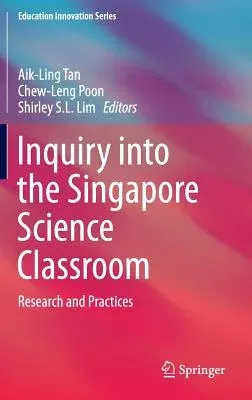This book offers an insight into the research and practices of science
teaching and learning in the Singapore classroom, with particular
attention paid to how they map on to science as inquiry. It provides a
spectrum of Singapore's science educational practices through all levels
of its education system, detailing both successes and shortcomings.
The book features a collection of research and discourse by science
educators in Singapore, organized around four themes that are essential
components of approaching science as inquiry: teachers' ideas and their
practices, opportunities and constraints from a systemic level,
students' competencies and readiness to learn through inquiry and the
need for greater awareness of the role of informal learning avenues in
science education. In addition, the discourse within each theme is
enriched by commentary from a leading international academic, which
helps to consolidate ideas as well as position the issues within a wider
theoretical and international context.
Overall, the papers set out important contexts for readers to understand
the current state of science education in Singapore. They also highlight
strengths and gaps in practices of science as inquiry as well as provide
suggestions about how the system can be improved. These research
findings are therefore helpful as they provide honest and evidence-based
feedback as well as tangible and doable ideas that policy makers,
teachers, students and school administrators can adopt, adapt and
enhance.

